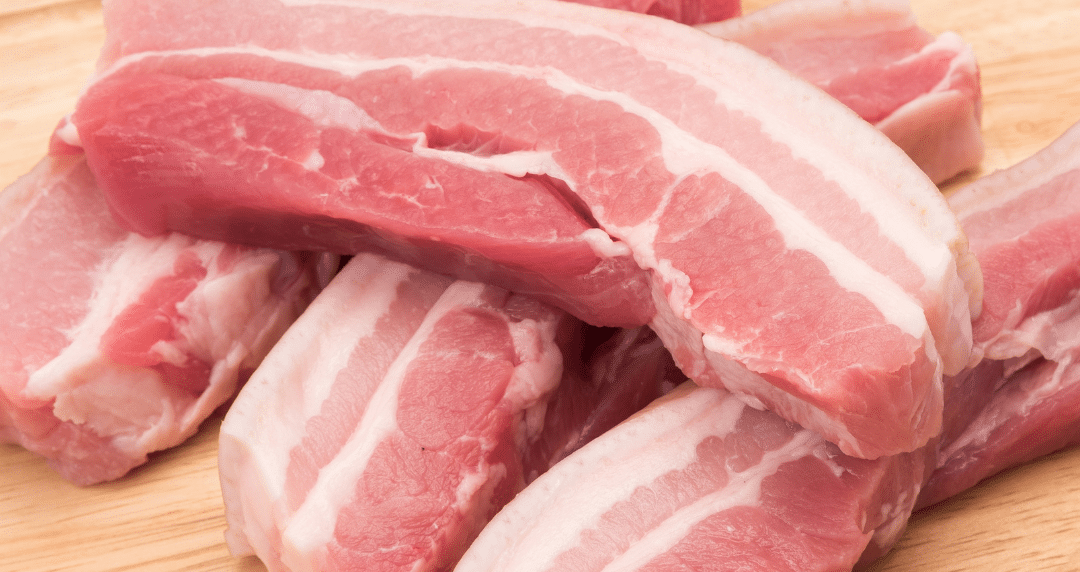Have you ever wondered what the Quran says about pork? Curious minds often seek clarity on this topic, as dietary laws play a significant role in various cultures and religions. In Islam, the Quran explicitly prohibits the consumption of pork/ flesh of swine, labeling it as haram, or forbidden. This prohibition is rooted in religious beliefs and serves as a guideline for leading a pious and disciplined life.
Understanding the Quranic stance on pork requires delving into the religious texts and interpretations that shape Islamic practices. By exploring the verses that address dietary restrictions, we gain insight into the significance of abstinence from certain foods like pork, and dead animals…
This blog post aims to illuminate the reasoning behind this directive and its broader implications for followers of Islam.
As we navigate the intricate teachings of the Quran regarding dietary laws, it becomes evident that the prohibition of eating pork is not merely a matter of arbitrary rules but a means of fostering spiritual growth and adherence to divine commandments. By examining the underlying wisdom behind this restriction, we can appreciate the holistic approach of Islam toward nurturing a harmonious relationship between body, mind, and soul.
What is the Quran?
The Quran is like a guiding light shining through the darkness of confusion. It’s not just a book; it’s a divine masterpiece, a treasure trove of wisdom waiting to be explored. So, let’s take a peek at this magnificent piece of Islamic scripture together.
Brief Overview
Ah, the holy Quran – the ultimate source of guidance for Muslims worldwide. Picture it as a roadmap, leading believers on a journey of spirituality. It’s not just any book you casually skim through; it’s a sacred text, revered for its teachings and lessons.
When Muslims speak of the Quran, they are referring to the holy book revealed to the final messenger, Prophet Muhammad peace be upon him by the angel Gabriel. This revelation occurred over a period of 23 years, encompassing the core beliefs and practices of Islam. The Quran is written in Arabic and is divided into chapters known as surahs, each offering unique insights and guidance.
In Islam, the Quran holds paramount importance, serving as a source of law, ethics, and spiritual nourishment at it is the words of Allah almighty. It is the literal word of Allah, offering believers a direct link to divine wisdom and guidance. Muslims around the world recite its verses in their prayers, seeking solace and direction in its profound words.
So, the next time you hear about the Quran, remember that it’s not just a book on a shelf; it’s a beacon of light illuminating the path of millions, guiding them towards a life of faith and submission to the divine will.

Pork in Islam
Did you know that in Islam, the consumption of pork meat or any pork products is considered haram, meaning forbidden? Let’s delve into what the Quran has to say about pork and why it holds such significance in Islamic teachings.
Prohibition of Pork
In the Quran, specifically in Surah Al-Baqarah, verse 173, and Surah Al Ma’idah, verse 3, the prohibition of consuming pork is clearly outlined. It is emphasized that pork is impure and should not be consumed by followers of Islam. This teaching is based on maintaining spiritual purity and adhering to the laws set by Allah.
إِنَّمَا حَرَّمَ عَلَيْكُمُ ٱلْمَيْتَةَ وَٱلدَّمَ وَلَحْمَ ٱلْخِنزِيرِ وَمَآ أُهِلَّ بِهِۦ لِغَيْرِ ٱللَّهِ ۖ فَمَنِ ٱضْطُرَّ غَيْرَ بَاغٍۢ وَلَا عَادٍۢ فَلَآ إِثْمَ عَلَيْهِ ۚ إِنَّ ٱللَّهَ غَفُورٌۭ رَّحِيمٌ” ١٧٣”
Surah Al-Baqarah, verse 173
“He has only forbidden you ˹to eat˺ carrion, blood, swine,1 and what is slaughtered in the name of any other than Allah. But if someone is compelled by necessity—neither driven by desire nor exceeding immediate need—they will not be sinful. Surely Allah is All-Forgiving, Most Merciful.“
حُرِّمَتْ عَلَيْكُمُ ٱلْمَيْتَةُ وَٱلدَّمُ وَلَحْمُ ٱلْخِنزِيرِ وَمَآ أُهِلَّ لِغَيْرِ ٱللَّهِ بِهِۦ وَٱلْمُنْخَنِقَةُ وَٱلْمَوْقُوذَةُ وَٱلْمُتَرَدِّيَةُ وَٱلنَّطِيحَةُ وَمَآ أَكَلَ ٱلسَّبُعُ إِلَّا مَا ذَكَّيْتُمْ وَمَا ذُبِحَ عَلَى ٱلنُّصُبِ وَأَن تَسْتَقْسِمُوا۟ بِٱلْأَزْلَـٰمِ ۚ ذَٰلِكُمْ فِسْقٌ ۗ ٱلْيَوْمَ يَئِسَ ٱلَّذِينَ كَفَرُوا۟ مِن دِينِكُمْ فَلَا تَخْشَوْهُمْ وَٱخْشَوْنِ ۚ ٱلْيَوْمَ” أَكْمَلْتُ لَكُمْ دِينَكُمْ وَأَتْمَمْتُ عَلَيْكُمْ نِعْمَتِى وَرَضِيتُ لَكُمُ ٱلْإِسْلَـٰمَ دِينًۭا ۚ فَمَنِ ٱضْطُرَّ فِى مَخْمَصَةٍ غَيْرَ مُتَجَانِفٍۢ لِّإِثْمٍۢ ۙ فَإِنَّ ٱللَّهَ غَفُورٌۭ رَّحِيمٌۭ ”
Suratul al maida verse 173
Forbidden to you are carrion, blood, and swine; what is slaughtered in the name of any other than Allah; what is killed by strangling, beating, a fall, or by being gored to death; what is partly eaten by a predator unless you slaughter it; and what is sacrificed on altars. You are also forbidden to draw lots for decisions.1 This is all evil. Today the disbelievers have given up all hope of ˹undermining˺ your faith. So do not fear them; fear Me! Today I have perfected your faith for you, completed My favour upon you, and chosen Islam as your way. But whoever is compelled by extreme hunger—not intending to sin—then surely Allah is All-Forgiving, Most Merciful.
Reasons for Prohibition
One of the main reasons behind the prohibition of pig meat in Islam is the concept of cleanliness and purification. Pigs are known to be one of the filthiest animals, they are scavengers and consume a variety of foods, including waste and decaying matter. By abstaining from pork, Muslims aim to maintain physical and spiritual cleanliness as a way of honoring their relationship with Allah.
Health and Spiritual Aspects
From a health perspective, the Quran mentions that consuming pork can have detrimental effects on one’s well-being and cause serious health issues. Pork is known to be a carrier of various diseases and parasites like pork tapeworm also known as Taenia Solium, causing potential health risks. By avoiding pork, Muslims prioritize their physical health and well-being.
On a spiritual level, abstaining from pork symbolizes obedience and submission to the will of Allah. By following the teachings of the Quran and refraining from pork consumption, Muslims strengthen their faith and demonstrate their commitment to living in accordance with Islamic principles.
In conclusion, the prohibition of pork in Islam goes beyond mere dietary restrictions; it is a fundamental aspect of spiritual practice and adherence to the teachings of the Quran. By understanding the reasons behind this prohibition, Muslims can cultivate a deeper connection to their faith and lead a life that aligns with their religious beliefs.

Alternative Provisions
Ever wondered what tasty options you have when you can’t indulge in the savory goodness of pork? Let’s dive into the alternative provisions that the Quran offers for those following Islamic dietary laws, ensuring your taste buds stay happy and satisfied.
Halal Food
Halal food refers to pure foods that are permissible for consumption by Islamic law. To be considered halal, the food must meet specific criteria such as being free from pork, alcohol, and blood. Additionally, the animals used for halal meat must be slaughtered in a specific way, known as zabihah, where the animal’s throat is cut swiftly with the mention of the almighty Allah to allow the blood to drain. This method is believed to be more humane and to ensure the meat is pure and fit for consumption by followers of Islam.
- Chicken: With its versatility in dishes like roasted chicken, chicken biryani, or chicken curry, this poultry option is a favorite among many.
- Beef: From juicy steaks to hearty beef stews, beef provides a flavorful alternative to pork in various cuisines worldwide.
- Fish: Whether grilled, baked, or fried, fish offers a light and healthy alternative that’s rich in omega-3 fatty acids.
- Lamb: Perfect for hearty meals like lamb chops or slow-cooked lamb stew, this meat is a popular choice in Middle Eastern and Mediterranean cuisines.
- Wild Animal: Herbivore wild animals that are slaughtered using the name of Allah just like chicken, beef…are also permissable.
- Vegetables: Explore the vast world of vegetables with dishes like stuffed peppers, vegetable stir-fries, or grilled eggplant, providing a nutritious and delicious pork-free option.
Haram Food
Haram food refers to any food that is considered forbidden or unlawful according to Islamic dietary laws. This includes pork and its by-products, animals not slaughtered in the name of Allah, and any food or drink containing alcohol unless it’s needed in cases of dire necessity such as severe hunger or thirst. Consuming haram food is strictly prohibited for Muslims, as it is believed to be impure and unclean food. It is important to be mindful of the ingredients in your food choices to ensure they comply with halal standards and avoid haram items. Some of the Haram foods in Islam are:
- Pork: The eating of pork and its by-products are considered Haram in Islam.
- Alcohol and any intoxicating substances are strictly forbidden as they affect the mind and alcohol causes liver damage.
- Blood from animals and dead meat or dead carcass are also considered Haram.
- Carrion (animals found dead rather than slaughtered) and predatory animals are not permissible.
- Alligator meat, frog legs, and insects are generally avoided as well.
- Any food containing gelatin derived from Haram sources is also not allowed.
- Cross-contamination of utensils and cooking surfaces or during the manufacturing process can also render otherwise permissible food items as Haram.

Cultural and Dietary Practices
The Quranic teachings on pork have influenced various cultural and dietary practices, shaping the way many communities approach food consumption. From Middle Eastern and North African cuisines that celebrate lamb dishes to Asian cultures where seafood takes center stage, the avoidance of pork has led to culinary creativity and unique flavor profiles.
In regions where pork is restricted, you’ll often find an emphasis on dishes that showcase the richness of alternative meats like beef and lamb. Spices and herbs play a crucial role in enhancing the flavors of these dishes, creating a symphony of tastes that reflect the cultural tapestry of the community.
Furthermore, the emphasis on moderation and mindfulness in dietary practices, as guided by the Quran, encourages individuals to savor and appreciate each meal. By choosing permissible foods and embracing diverse culinary traditions, followers of Islamic dietary laws can enjoy a vibrant and fulfilling gastronomic journey that not only nourishes the body but also feeds the soul.
Conclusion
In conclusion, the Quran explicitly prohibits the consumption of pork for Muslims. The verses in the holy book clearly state the harmful effects of consuming pork and emphasize the importance of following dietary restrictions for spiritual and physical well-being. By understanding and respecting these teachings, you can deepen your faith and lead a more mindful lifestyle as a follower of Islam. Remember, the Quran offers guidance not just for your spiritual journey, but also for your overall health and well-being. If you are ever in doubt about any product, make sure to consult with Islamic Scholars or an Islamic organization near you.
If you are interested in teaching Quran online or want to learn Quran online join us today by sending us an email on our contact form!



